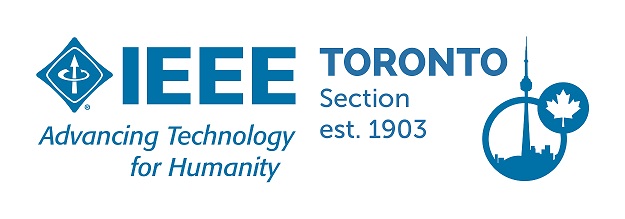A Short Course in "Electrical Power Substations- Planning, Design, Construction & Project Management"
Who should attend: Electrical, IT, engineers with interest in energy & power system; Graduate/ undergraduate students in (colleges and universities); Foreign-trained professionals, Engineers, Technocrats, technologists and other professionals in the field of electrical utility, consulting and EPC contracting (engineering, procurement & construction)

The Education Committee of the IEEE Toronto Section is offering a short course in “Electrical Power Substations- Planning, Design, Construction & Project Management” in April 2021 to develop an understanding of the practical applications of Power Substations Planning process, Design aspects, Substation Components, Construction practices, Commissioning & testing procedures and relevant Project Management techniques. This is the 2nd series after successful completion of earlier course delivered on “Power System Engineering, Operation and Management” to develop an overall understanding of power system engineering and technologies in the fields of generation, transmission and distribution.
Objective: The objective of this course is to ‘Bridge the Gap between Engineering Education and the Practical Workplace’ and to make transformative advancements in engineering education and professional training by integrating power system engineering theory with ongoing cutting-edge research trends and latest workplace technologies, products and practices, for the best interest of power engineering students & professionals.
Description: This short-term course on “Power Substations- Planning, Design, Construction & Project Management” covers all the aspects of the subject. The course introduces power systems basics, review concepts of power system design along with Ontario transmission system planning overview, outlining some of the regulations; defines substation classification highlighting design philosophy. The course also details the various substation components and their functionality, substation busbar configurations, their merits and demerits, and provide an illustrative introduction to substation projects. This will also cover the major construction activities to construct / build a high voltage power substation and methods and practices to manage such large complex projects. The course is meticulously devised to impart the participants with practical exposure to power system substations, make them understand the various requirements and help them understand balancing the reliability and economy. The course also covers Project Management techniques to manage power system specific projects.
Date and Time
Location
Hosts
Registration
-
 Add Event to Calendar
Add Event to Calendar
Loading virtual attendance info...
- Contact Event Host
- Co-sponsored by Satish Saini, Chair Education Committee, IEEE Toronto Section
- Starts 14 February 2021 06:00 PM UTC
- Ends 26 April 2021 10:00 PM UTC
- Admission fee ?
Speakers
Satish Saini
Opening & Overall Course Introduction & Course Chair
Biography:
Satish is a Licensed Professional Engineer registered with Professional Engineers Ontario with 35 years of accomplished management experience in various fields of energy and power. Electrical utility operations and management, business development and project management related to DS grid modernisation, renewable energy, smart metering / AMI, Advanced Distribution System (ADS) / Smart Grid, DSM and DMS. Actively participated in the development of various energy policies with ministries, regulatory authorities, utilities and local distribution companies. He is an active member of IEEE in various committees, Task Forces and Working Groups related to Smart Distribution, Smart Grid, MicroGrids and Smart Cities. Current Chair of IEEE Smart Grid Technical Activities Committee and Chair of Education Committee IEEE Toronto Section. Has a strong vision of developing the aging DS Grid with latest innovative technologies and solutions along with transforming utilities through smart grid programs
Email:
Hemant Barot
“Electrical Power Substations- Planning, Design, Construction & Project Management”
Biography:
Hemant Barot has a PhD in Power System Operation & Planning and is a certified Professional Engineer licensed in the Province of Ontario Canada and a Project Management Professional. His diverse work experience includes working with Utility, Research and Academic Institutes and Original Power Equipment Manufacturers. His experience includes working as a Senior Engineer in Transmission system Planning, Project Planning and Estimation as well as roles in Project Management, Conceptual Engineering and Academics.
Agenda
Course Outline:
Day 1: Power system overview & segments; Ontario’s power system, supply mix & energy market
Day 2: Power System Planning process & Design concepts
Day 3: Power Sub-stations Components, layout & functionalities
Day 4: Substations Bus Bar layout, configuration & categories
Day 5: Electrical Substations construction, Project Management, actual case study & substations visuals (in place of site visit which has to be canceled due to COVID-19 restrictions)
Course Test/Exam
Course Timetable:
- Monday, April 26, 2021: 6.00 PM to 9.00 PM
- Tuesday, April 27, 2021: 6.00 PM to 9.00 PM
- Wednesday, April 28, 2021: 6.00 PM to 9.00 PM
- Thursday, April 29, 2021: 6.00 PM to 9.00 PM
- Friday, April 30, 2021: 6.00 PM to 9.00 PM
What will you receive after completion: “Certificate of Completion” along with CEUs and PDH (After completing & passing a short exam and evaluation); Course Materials in electronic Format; Continuous support on career advice, resume building and skills development.

